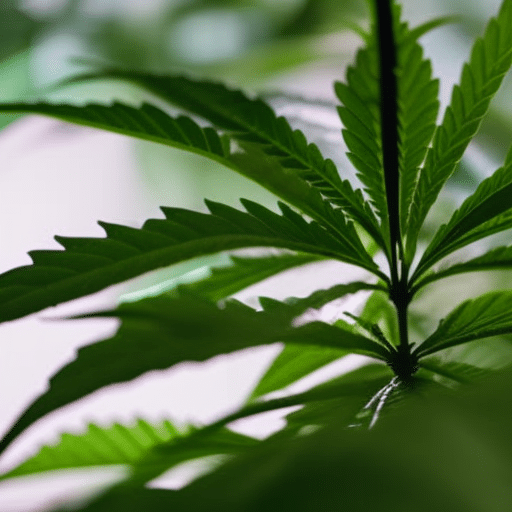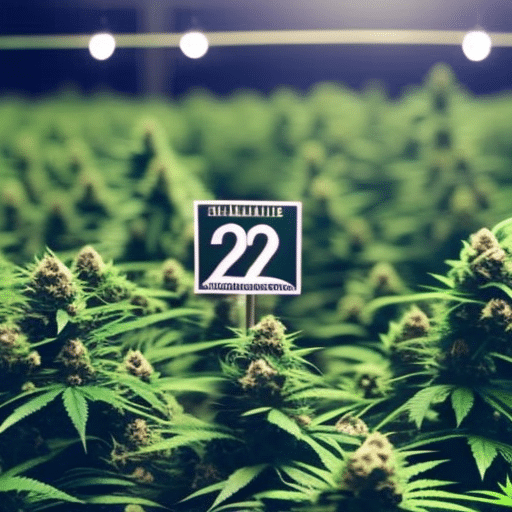As we usher in a new year, Delaware’s newly established cannabis regulations for 2024 are also making their entrance. You may be curious about how these fresh laws will impact you, whether you’re a consumer, a cultivator, or simply an interested bystander.
Table of Contents
We’ll break down the updates for you, from licensing requirements to changes in sales and distribution, and even the rules surrounding home-growing.
However, keep in mind that the influence of these laws on Delaware’s cannabis industry isn’t straightforward. So why not stay with us as we dissect these fascinating developments?
Deciphering the 2024 Cannabis Regulations

To fully understand Delaware’s 2024 cannabis regulations requires delving into the legal language and policy details that shape this new landscape. The first aspect to consider is cannabis taxation. This isn’t merely a simple sales tax but rather an intricately structured policy designed to generate revenue while ensuring that the product remains affordable and accessible.
The state’s taxation policy includes a 15% tax on retail sales of cannabis products and a cultivation tax based on the weight of harvested cannabis. It is evident that careful consideration was given to striking balance between generating funds for public services while maintaining affordability for consumers.
Medical usage guidelines form another crucial part of these regulations. The laws demonstrate compassion towards those who require cannabis for medical purposes. Patients with a valid medical card are exempt from retail sales tax, making it more affordable for those who need it for health reasons.
In essence, Delaware’s 2024 cannabis regulations strike a careful balance between taxation and compassionate use. Understanding these nuances can help you better serve those impacted by these laws. Whether it’s patients seeking relief or individuals exploring recreational use, your informed perspective can make a significant difference.
Licensing and Regulatory Framework

Let’s explore Delaware’s licensing and regulatory framework for cannabis which establishes an effective process to ensure responsible cultivation, production, and distribution of the product. This new structure is designed to balance the needs of consumers, businesses, law enforcement while also addressing various regulatory challenges.
Obtaining a license is an essential step in becoming part of Delaware’s emerging cannabis industry. You’ll need to meet stringent criteria demonstrating your ability to operate responsibly and ethically. The state’s regulatory bodies are keen to ensure that only those who uphold the highest standards will be granted licenses.
The license acquisition process can be complex with potential hurdles such as financial audits, background checks, and securing suitable locations that meet zoning regulations. It’s a rigorous process designed to weed out unsuitable candidates ensuring only the most qualified get approved.
Navigating these regulatory challenges can be daunting, but they are in place to foster a safe and responsible cannabis market. Understanding the licensing and regulatory framework is crucial if you’re considering joining this burgeoning industry. So, ensure you’re fully informed and prepared to meet these stringent requirements.
Changes in Sales and Distribution

After navigating the intricacies of licensing and regulations, you’ll encounter the evolving landscape of sales and distribution within Delaware’s cannabis industry. It’s crucial to stay updated about changes that may impact your business especially regarding tax implications and retail opportunities.
-
Tax Implications: New regulations have introduced changes in tax structures. The state now imposes a 15% excise duty on cannabis products. This tax is paid by distributors but should be factored into your pricing strategy.
-
Retail Opportunities: With new laws in place, more retail licenses are being awarded by the state. This presents opportunities for entrepreneurs to enter this growing market.
-
Distribution Channels: The 2024 regulations permit licensed retailers to deliver cannabis products thereby expanding their customer reach.
-
Product Sourcing: Retailers now have the freedom to source products from any licensed producer in the state, fostering healthy competition and variety in offerings.
These changes present both challenges and opportunities. It’s essential to understand them clearly and adapt your business strategies accordingly. Stay compliant, be innovative, and you’ll thrive in Delaware’s burgeoning cannabis market.
Home-Growing Rules and Exceptions

Among the myriad of regulations, you’ll find that Delaware’s 2024 cannabis rules include specific provisions for home-growing with certain exceptions and conditions to consider. These laws are designed to ensure safety and control over cannabis cultivation.
The first thing you’ll notice is the emphasis on cultivation techniques. Delaware law mandates that home-growers adhere to strict growing practices to prevent misuse or hazardous situations. For instance, plants must be grown in a secure, locked space that’s out of public view.
Seed accessibility is another critical part of these regulations. The state has outlined clear pathways for purchasing seeds primarily through state-licensed dispensaries ensuring all seeds come from safe reliable sources reducing risks associated with illicit or harmful strains.
However, there are limits to home-growing. Delaware’s rules currently allow for up to six mature plants per household regardless of the number of adults living there. Additionally, all home-growers must be at least 21 years old.
For those seeking to serve others through home-growing, it’s essential to understand and follow these rules. They’re designed to protect you and your community ensuring everyone can safely enjoy the benefits of cannabis.
Impact on Delaware’s Cannabis Industry

While understanding these home-growing regulations is crucial, it’s also worth examining how these rules are shaping Delaware’s cannabis industry itself. The new laws have significant effects particularly in areas of industry taxation and changes in consumer demographics.
Firstly, industry taxation has been transformed. The state now imposes taxes based on the weight of the product rather than its price. This shift has led to more predictable revenue streams for businesses and the state government alike.
Consumer demographics are also changing. The legalization of home-growing has allowed more people especially millennials and Gen Z to participate in the cannabis market.
To provide a more detailed picture consider the following impacts:
- Increase in tax revenues that can be reinvested into community development
- A broader consumer base due to relaxed regulations
- More investment opportunities within the cannabis industry
- An increased number of jobs created by an expanding market
Conclusion
The advent of Delaware’s new 2024 cannabis regulations signals a time of change. You’ll see more licensed distributors, altered sales methods, and even home-growing exceptions. These changes could potentially boost the state’s cannabis industry by 15% in the first year alone. So, prepare to navigate these new rules and opportunities. It’s a new year, a new era for cannabis in Delaware and the possibilities are as intriguing as they are vast.
We invite you to visit us at Cannabis Docs of Delaware to learn more about these new regulations. We’re always here to guide you through this changing landscape and answer any questions you may have. Feel free to give us a call anytime. We look forward to engaging with you and helping you navigate these exciting new opportunities!

